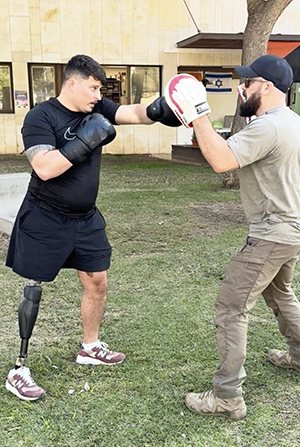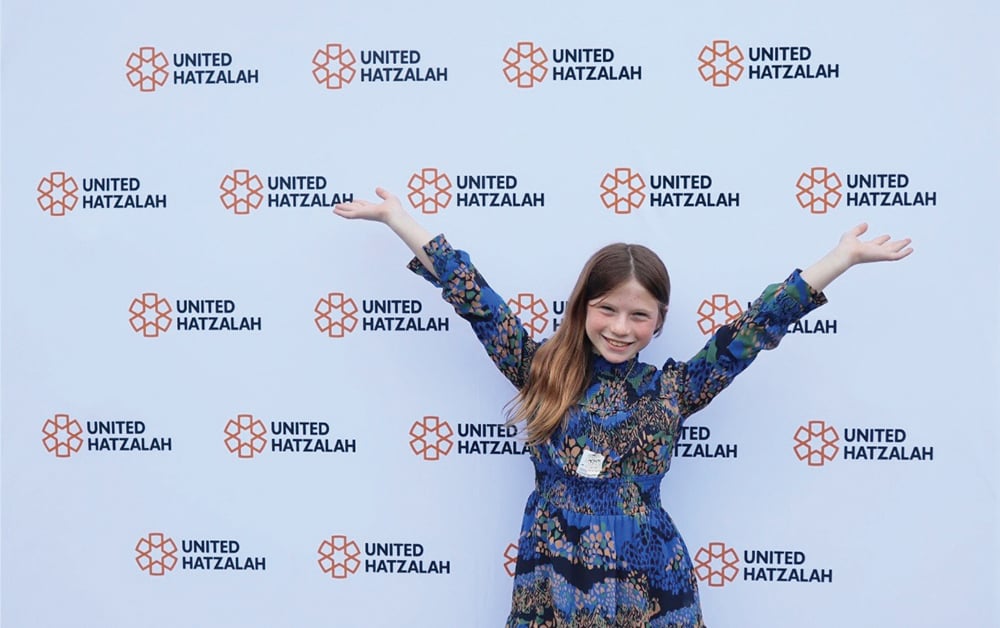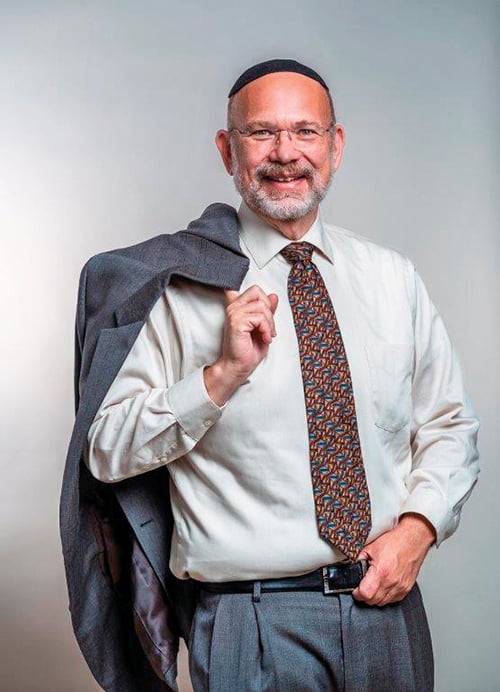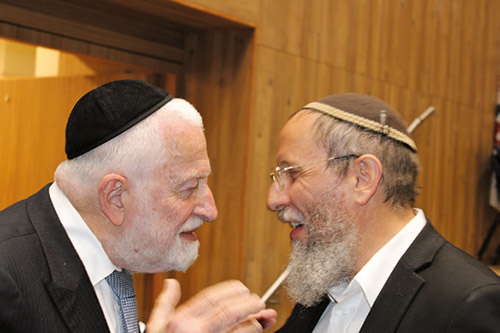
This past week, I flew to Israel to participate—along with nearly 1,000 delegates from 50+ countries and more than 200 different cities—in the first ever World Orthodox Israel Congress, organized by World Mizrachi. I was originally invited by Rabbi Reuven Taragin of Yeshivat HaKotel and World Mizrachi (who is also a frequent Jewish Link Torah columnist), to chair the North American media committee/panel for the Congress. Although the media panel didn’t ultimately pan out, I was still happy to participate and attend this historic event. (See our article and photo spread on the Congress on pages 104 and 106 for more about this event.)
I arrived last Wednesday on Yom Ha’atzmaut itself—Israel’s 75th—a day for which I had never before been in Israel proper. As it turns out, my plane was delayed a few hours in part due to the famous Yom Ha’atzmaut Israeli Air Force “matas” or fly-by and air show. Although I missed most of Yom Ha’atzmaut day, I definitely got some sense of what was going on in the country as I drove the Israeli flag-filled streets and saw many Israelis in their backyards and in parks barbecuing and celebrating.
Unfortunately, I wasn’t able to be there for the formal Yom Hazikaron and Yom Ha’atzmaut events that preceded the formal Congress from Monday night through Wednesday afternoon, but I arrived in time for the opening dinner, which was a lovely event filled with many Orthodox Religious Zionist/Dati Leumi/Mizrachi leaders from around the world.
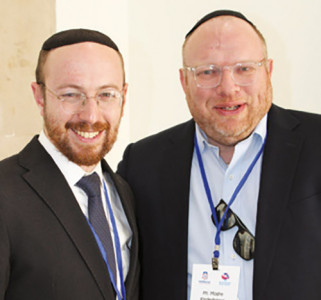
Here are just a few of the personal highlights for me of the jam-packed sessions and networking that went on from Wednesday early afternoon until Friday. First, meeting and hearing from the incredibly impressive and warm Rav Yosef Zvi Rimon at multiple points throughout the Congress. Rav Rimon, a recognized posek, the chief rabbi of Gush Etzion, the rosh yeshiva of Jerusalem College of Technology/Machon Lev and the founder of Sulamot and La’Ofek (formerly JobKatif), spoke on a wide variety of topics. At one of the morning sessions on Thursday, he described how he created and produced the Ratzim LeMishna series of videos in Israel, of which I had not heard, and which engaged Israeli students interactively and got them learning Mishnah in a brand new way, without cutting corners or costs. These videos are incredibly popular in Israel and Sulamot is looking to bring them to the diaspora as well. For more info, check out sulamot.org. Our group watched a video of the young Israeli children learning about and acting out critical concepts from the Mishnah, and even though I could see that it wouldn’t be an exact fit for an American viewership, I could easily see why young viewers liked it. I can’t wait to see some of their English videos.
Throughout his multiple speaking opportunities, amongst them a panel/dialogue with our own RIETS Rosh Yeshiva Rav Hershel Schachter, Rav Rimon handled every topic, challenge, dvar Torah and question with aplomb, humility, humor and intelligence. His “Hinglish” (a new term for the mashup of Hebrew-English that some Israelis speak) was easy to listen to and understand. I feel I wasn’t alone in leaving the Congress thinking that Rav Rimon is truly at the height of his strength and leadership and he should be privileged to continue to lead and direct all of his many efforts on behalf of the Jewish people for many years to come.
Other highlights for me were hearing and learning firsthand about all of the programs being started for both Israel and chutz la’aretz such as the Shagririm Balev (shagririm.org.il/), a global matchmaking app and service. I also attended a session called the Halacha Learning Revolution and learned more about programs such as the Tzurba M’Rabanan series (tzurbaolami.com) and the Deracheha site and article series for women (deracheha.org), both of which I encourage our readers to check out. I also learned why our Torah columnist Rabbi Yossi Goldin no longer has time to write for The Jewish Link, as I attended his session with rabbis who made aliyah and heard about his efforts to create a network and programs for these olim rabbis under the aegis of the Mizrachi and Young Israel networks. Hatzlacha Rabbi Goldin in the new role!
Another highlight for me was hearing Rabbi Leo Dee, who lost his wife Lucy and his two daughters Maia and Rina (H”YD) in the brutal shooting on Chol Hamoed Pesach. Rabbi Dee started by thanking Rav Schachter for all the Torah he has learned over the years online from his son, Rabbi Shay Schachter. One beautiful and emotional idea he shared was the importance of tefillah and the pesukei d’zimrah. He explained that “the pesukei d’zimrah we say every morning are the key to understanding davening and appreciating what we have. It’s all a lesson in emunah. If we can appreciate the trees, the plums, mountains and sky and we can say Baruch Hashem, then we are building ‘points,’ so to speak, so that when things don’t go so well, we have some in the bank account to withdraw… and boy, did we have to make a big withdrawal recently.”
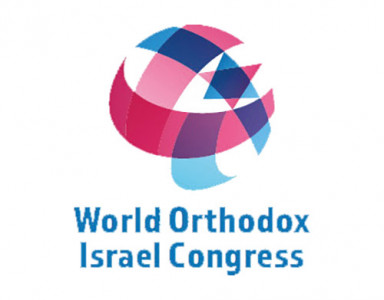
He also noted, “people ask me, do I have regrets or things that I would have liked to say to Lucy or the girls … and the truth is that Lucy and the girls and I regularly told each other that we loved each other … and we had just finished the Seder night where we had questions sheets that all family and friends filled out before the Seder. We had a question sheet with 15 questions and by Dayenu, we each had to write out five things that were special about the person older than them, and that’s what we did. We went around the table. Everyone had to say five nice things about someone else. We are a family that never left anything unsaid. My advice is tell those you love what you love about them and those you are fighting with, make up with them. You never know what tomorrow will bring.”
He concluded with a beautiful idea about the power of tefillah and smiling: “I learned many years ago from Rabbi Aryeh Kaplan about smiling during tefillah. So when I daven Shema and the Amidah, I try to smile … and when you do this, you find that many of the words fit perfectly with a smile, and almost demand that you do it. It turns out that a lot of research has been done since I first learned this and the research says that we may think that when we smile, we’re happy, and possibly, that’s true. But it’s also true that if we smile, we feel happy! Yes, smiling actually makes us feel happier. Rav Efrem Goldberg cited research that people in sunny countries are happier if they wear sunglasses. Why? Because if you squint that makes your face frown and you feel sadder. But if you wear sunglasses, you frown less and feel happy. Check out the research on Google, simple as that. So tefillah and Torah make you happy.”
Another fascinating session that I attended was one on the worldwide shortage of educators and rabbis and it was interesting to hear how different the approaches were in Israel, the UK, and in the U.S. in attempting to solve it. Yet another session on the impact of olim in Israeli society also intrigued me as I heard my friend and Nefesh B’Nefesh Founder Rabbi Yehoshua Fass, and former Knesset Member and Founder of Yad L’Olim, Rabbi Dov Lipman, both mention how necessary it was for olim to push back against the so-called “kacha ze” (that’s life) mentality that exists in Israeli society.
Probably the most thought provoking and troubling session for me personally was the one on judicial reform where the Kohelet Forum’s Prof. Moshe Koppel and the Jewish People Policy Institute’s Prof. Yedidia Stern, both Orthodox Jews and former shulmates/neighbors, who sit on both sides of the judicial reform furor now engulfing Israel, attempted to engage in a civil dialogue on both sides of the debate. Prof. Koppel laid out a strong case for the need for reform and Prof. Stern equitably explained why so many did not see the world the way that Prof. Koppel did and were so afraid of the judicial reform efforts. It was a difficult session to be a part of as each presenter seemed to give up on the possibility of compromise between the two sides and positions. All of us who listened to that dialogue left thinking that the need for some type of compromise is greater than ever, but no real path to compromise currently exists. I had hoped to hear that some of the issues were easy to overcome but left thinking that only rough days existed ahead for Israeli society and the political system.
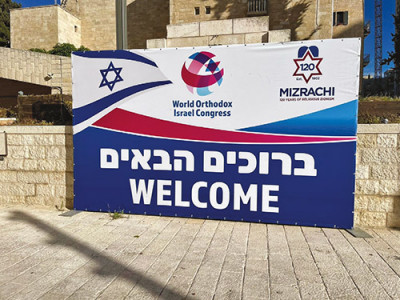
It was incredible to see how many leaders and laypeople from our core readership areas were in attendance and also participating in the various forums. Among them were YU’s Rabbi Dr. Jacob J. Schachter, the OU’s Rabbi Menachem Genack, Moriah’s Rabbi Daniel Alter, CBY’s Rabbi Elliot Schrier, Yeshivat Frisch’s Rabbi Eli Ciner, Teaneck’s Jack Forgash, Rebbetzins Shira Schiowitz and Rachel Besser and many, many others.
Yashar koach to Mizrachi Executive Chairman Rav Doron Perez, Deputy CEO Rabbi Danny Mirvis and educational director Rav Reuven Taragin, for their yeoman efforts in planning the Congress. It was a trip and Congress to remember for all of us who attended.
PS: Last but not least, I do want to give a shout-out to my friends Ely and Ilana Kronenberg for hosting me in their lovely home in the Zayit section of Efrat and for taking me to the unbelievably ruach-filled Kabbalat Shabbat at Rabbi Shlomo Katz’s shul Shirat David (shiratdavid.com; and yes, that’s Eitan Katz’s brother) and to introducing me to so many special friends of theirs in the Efrat community.
By Moshe Kinderlehrer, Co-Publisher /The Jewish Link



